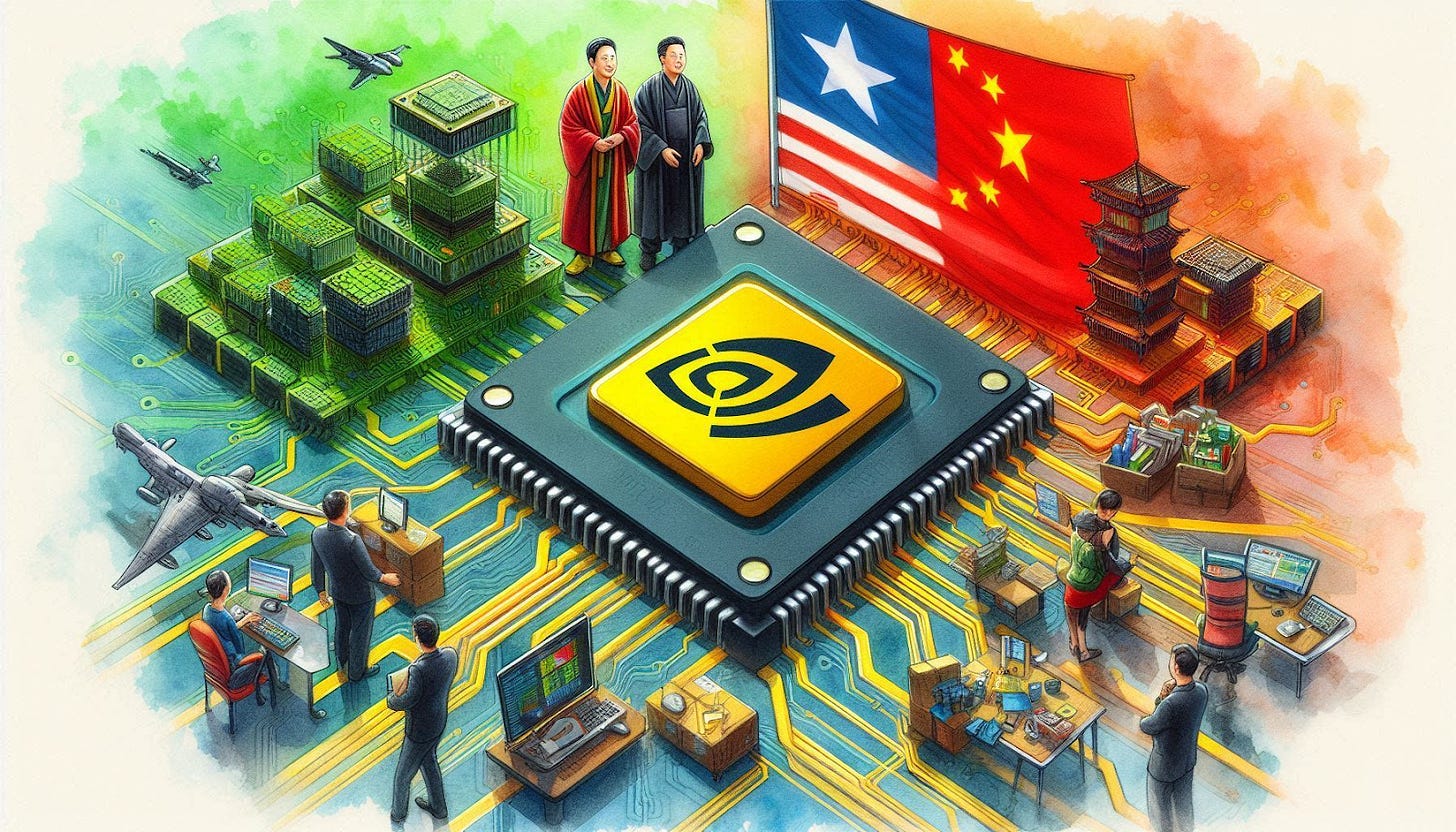Welcome back,
This week’s delayed email is sponsored by my hellish travel experience returning home—one cancelled flight and another delayed by four hours. But back we are!
This week’s lead story is Apple’s unlikely move to shutdown, or at least restrain, mini apps in China. One of the biggest innovations in mobile, mini apps—aka apps within apps—aren’t a new concept at all. Launched in 2017 by WeChat and with the backing of Apple, they empowered Chinese mobile apps to do a multitude of things to make the user experience sticky and streamline the gap between using iOS, Android or other operating systems.
It seems unlikely Apple was pleased. It was likely put in a situation where it had no choice but to go along with it. Now that has changed, however, and the US firm is reportedly making it tough for Tencent, ByteDance and others to run these broad mini program initiatives. We can explore why.
Elsewhere—is Amazon fumbling India? Chinese smart car firms are going public. And the Philippines first unicorn just got a huge new valuation of $5B, but can we really call it a unicorn?
All that and more in this week’s Asia Tech Review.
See you again next week,
Jon
PS: Follow the Asia Tech Review LinkedIn page for updates on posts published here and interesting things that come our way. If you’re a news junkie, the ATR Telegram news feed has you covered with news as-it-happens.
-
Apple goes after mini apps in China
Apple’s newest battle isn’t against a smartphone rival or even the government, but instead the biggest innovation China’s big tech has made in mobile: mini programs.
Launched in 2017, mini programs are essentially apps within apps. Pioneered by WeChat, Tencent’s universally popular messaging app that’s used by over 1.2 billion people each month, they let you book taxis, pay bills, book cinema tickets and more from within the app. The concept has since been adopted across the board by apps in China with Douyin, the Chinese cousin of TikTok, building out a formidable array of apps that live inside the app and not the Apple ecosystem.
Mini programs launched with Apple’s backing originally so it isn’t clear why the US firm is suddenly taking this stance. But taking a stance it is, as Bloomberg first reported:
-
In May, Apple warned Tencent it may reject essential WeChat updates unless the developer eradicates links that mini-game developers use to accept payment off Apple’s platform. Months later, Apple asked the company to disable a key in-game messaging feature that also diverted users. Tencent has yet to accede.
-
In June, Apple told ByteDance it wouldn’t accept new updates of Douyin—TikTok’s Chinese cousin—unless it too plugged similar payment loopholes.
Apple is under pressure across the world where governments have pushed back against the ‘dominance’ of its operating system and in-built services which include payment. Apple has long battled against its in-app payment charges with an EU antitrust case, while in Japan passed a law to allow third-party payment systems on iPhones and devices running Google’s Android platform.
Taking on China’s top app makers is a risky strategy that could push them towards homegrown alternatives. One big narrative this summer is how Huawei’s Harmony OS is now China’s second largest mobile operating system behind Apple’s iOS—and it is cozying up to Tencent, ByteDance and others with deals to remove all revenue sharing from apps like WeChat and Douyin.
Apple is betting that its position in China is so entrenched that it can play the hard line rather than follow suit. Grab the popcorn, this will be one to watch.
-
Philippines first unicorn now worth $5B
Mynt, the fintech startup and e-wallet operator that span out of operator Globe Telecom, became the Philippines first billion-dollar valued ‘unicorn’ startup four years ago and now a new round has pushed that valuation higher still.
An investment worth $390M from Ayala Corp—the parent firm behind Globe Telecom—and Japan’s Mitsubishi UFJ Financial values Mynt at $5 billion, a big jump from its $2 billion valuation back in 2021 when it became the first unicorn in the country. There is, of course, an argument as to whether a spinout of a huge conglomerate should be classified as a startup—and therefore unicorn—altogether. But there are plenty of examples across Southeast Asia and maybe this is one way to kickstart a startup ecosystem.
Mynt and its rival Voyager is a particularly interesting battle since Mynt is backed by Ant Financial (of House Alibaba) and Voyager counts Tencent as an investor while it too originated from a mobile operator, PLDT. That makes it a rare proxy battle between the two Chinese tech superpowers in Southeast Asia.
-
Is Amazon fumbling its India opportunity?
Collective belief has been that Amazon has done well in India. I still remember the outrageous move from Jeff Bezos when, back in 2014, Amazon announced a $2 billion investment in India just one day after rival Flipkart (now owned by Walmart) raised an incredible $1 billion in funding, which was unprecedented a decade ago.
Amazon has poured countless billions more since then—who can forget the many images of Bezos in traditional outfits, and even hanging out of a bus—but fast forward to today and there’s a sense that it has lost the pulse of the Indian e-commerce market.
For one thing, Manish Tiwary, a key executive who is the head of Amazon’s India operations, is leaving the firm as pressure from rivals that include Flipkart and a host of newer, hotter quick commerce firms intensifies.
At the same time, Amazon stands accused of sitting still in India. Industry chatter is that a failure to adopt quick commerce, coupled with poor performance in tier-2 cities and sluggish results in key categories like apparel means Amazon is “fumbling” the India opportunity, according to this article from my old colleague at TechCrunch Manish Singh.
Flipkart, meanwhile, appears to be thriving. A new report shows it maintains an industry-leading 32% e-commerce market share ahead of Amazon (24%) and niche players including Meesho (7%) and Myntra (5%). But Flipkart is also looking to expand, too.
Following the trend, Flipkart launched a quick commerce service which is initially limited to parts of Bengaluru. That may initially be small in scale but it is an indication of what is to come once the firm scales the service.
Amazon was said to be in talks to invest or even buy a part of IPO-bound delivery service Swiggy and its quick commerce service, but there’s no update as of now. No wonder the industry is talking.
-
Chinese smart car firms drive into major IPOs
There’s not one, but two smart car-related IPOs. Both are at different stages but notable for what is to come next as autonomous vehicles rise and AI continues to dominate the stock market narrative, thanks to major performers like Nvidia.
Black Sesame, a chip designer for autonomous driving systems backed by Xiaomi, priced its Hong Kong IPO at HK$28 per share, the low end of the marketed range. Despite that, it raised HK$1.04B ($133M), in one of Hong Kong’s largest listings of the year.
Meanwhile over in the US, Chinese robotaxi firm WeRide is set to raise up to $400M from its Nasdaq listing. We wrote about the listing which is notable as the largest Chinese IPO in the US since Didi—that was ultimately ill fated but Weride has secured the necessary licences for its float (that’s now a thing post-Didi) but the circumstances are quite different.
There was concern with Didi around data being made available due to its public status in the US, and maybe a desire to see China’s top mobility service listed on home soil. It’s easy to see positives of pioneering tech like Weride soaking up money and benefits from listing in the US. But, as ever, who knows how things will progress.
The US is introducing new measures that will prevent some of the international loopholes that Chinese semiconductor makers have used to gain access to parts from the US that would be inaccessible to them thanks to previous laws curbing restrictions link
Still, China is narrowing the AI gap with the US through rapid progress in deploying applications and state-backed adoption of the technology, despite the lack of access to advanced chips, according to industry experts and analysts link
Chinese tech firms have rushed to create their own large language models (LLMs) – the underlying technology behind generative AI technologies like ChatGPT – with many even claiming to match or exceed their US counterparts, all amid tighter US restrictions on advanced chips considered critical to the training of AI systems.
Nvidia’s new China-ready GPUs face uncertainty as Washington signals more chip restrictions link
It isn’t just about AI, as the US Commerce Department is expected to propose barring Chinese software in autonomous and connected vehicles in the coming weeks link
China’s EV growth is a bright spot for chipmakers Infineon, Texas Instruments and NXP despite pulling back from other sides of the Chinese market due to US sanctions link
Intel just launched a new chip to power Chinese carmakers’ advanced in-vehicle AI initiatives link
China is reportedly close to launching its first rival to Starlink link
JD.com’s Richard Liu is the latest Chinese co-founder to walk away from a tech giant only to be involved from the sidelines—the FT reports he is “quietly steering the Beijing-based company from London” as it takes on Shein, Temu, Alibaba and others link
Tencent followed rival Alibaba by joining a $300M funding round for generative AI startup Moonshot, which is now valued at $3.3B—Alibaba has already backed the startup, which is one of China’s four ‘AI Tigers’
SCMP has a feature on Moonshot’s 31 year-old CEO and founder who previously worked at Huawei and studied in the US link
TikTok and Amazon are collaborating on online shopping, heating up competition with Shein, Temu and others link
TikTok is also rolling out a new feature called TikTok Spotlight, which will integrate in-app hubs for movies and TV shows directly into fan-made videos link
ByteDance has withdrawn a rewards feature from its TikTok Lite product following a review from the European Commission link
FTC and the Justice Department have sued TikTok over alleged child privacy violations link
Google is working closer with Chinese OEMs to tailor the Gemini experience for smartphones, with Xiaomi among the first link
Forget Jack Ma, Pony Ma and others, it is Colin Huang, the founder of PDD—which owns Temu and China-based Pinduoduo—who is officially the richest man in China thanks to his company’s storming stock price performance link
More than 50 widely used apps in mainland China—including platforms operated by Tencent, Alibaba and ByteDance—are taking part in beta tests for the country’s proposed cyber identity authentication system link
PhonePe could expand its retail payment operations into new regions, including Southeast Asia, the Gulf and parts of Europe link
Oyo, once India’s second-most valuable startup with a $10B valuation, is now valued at $2.4B following a new round of funding—that figure is less than the total amount that the company has raised. Founder Ritesh Agarwal previously invested $1.5B of his own money, and the investment fund he is associated with was among the biggest backers of this new round, a Series G round — I guess that’s Grounded reality… link
AI is disrupting India’s technology outsourcing industry, prompting companies to adapt while potentially threatening many jobs in low-end operations like call centers and basic business process outsourcing tasks. link
Agritech startup Agrizy raised $9.8M in funding for expanding products, launching new services, and providing financial aid to MSMEs and farmer groups link
Postman may be a star SaaS business but its valuation has been cut by 30-40% in secondary deals, which have seen some funds by into the business that was previously valued at $5.6B link
EtherealX, an Indian space startup, raised a $5M seed round to accelerate it plans to develop fully reusable medium-lift launch vehicles that could make satellite launches far more cost-effective and time-efficient link
Temu only launched in Thailand weeks ago, but already the local government has tightened regulations on the import of cheap goods, with the Prime Minister himself looking into Temu link
Fishermen in Indonesia are using an AI-powered app from the government to take the guesswork out of fishing and increase their yield—they are one of a handful of use cases catered to by a government agency that leads the implementation of the national policy on AI link
Thailand’s police force is cracking down on pirate streams of Premier League football games—including some streams that were hosted from a car wash shop link
HP is looking to shift more than half of its personal computer production away from China and is setting up a “backup” design hub in Singapore in an attempt to reduce geopolitical risks around China and Taiwan link
Singapore’s school system is on alert after a company used by the country’s Ministry of Education to protect all iPads and Chromebooks used by students in secondary schools was hacked and had 13,000 student devices wiped link
Infineon has started production at its largest power chip plant in Malaysia, boosting the country’s role in the global semiconductor supply chain link
GoTo reported a Q2 underlying loss of 70B rupiah ($4.3M), down from 139B rupiah in the previous three months as cost-cutting efforts take effect link
Indonesia banned search engine DuckDuckGo over gambling and pornography concerns link
Delivery Hero is merging three of its businesses across Europe and Asia to cut costs and simplify its operations as the German food delivery business looks for ways to revive growth—European business teams Foodora and Yemeksepeti will combine with Foodpanda in Asia link
How a multibillion-dollar cyberfraud industry operating out of Southeast Asia relies on forced labor and torture link
SK Hynix is set to receive an initial $450M in US grants and $500M in loans to build an advanced chip packaging and research facility in Indiana, a project that will bolster US capacity for a critical part of the artificial intelligence supply chain link
E-commerce giant Coupang posted its first loss since 2022 (-$77M) as the cost of buying flailing luxury goods platform Farfetch earlier this year and a fine from the Korean government weighted down its latest quarterly performance link
After a series of setbacks in developing the crucial memory chips for the AI market, Samsung is said to be making significant strides to close the gap with rival SK Hynix link
Over 6,000 unionized workers at Samsung Electronics have returned to work after failing to secure concessions following a first-of-its-kind strike at the tech giant—it sounds like a large number but it is a fraction of the 120,000 staff employed in Korea link
Korea’s Naver won’t be reducing its stake in chat app Line or web portal Yahoo Japan—an event that looked like it would happen following what appeared to be a Japanese government order in response to a hack that exposed Japanese user data. SoftBank had been in talks to take a majority share of LY Corp which owns the Line and Yahoo Japan stakes link
A Montenegrin court has once again postponed Do Kwon’s extradition to South Korea link
South Korea will provide $400M in financial support to small businesses hit by payment delays on two Qoo10 e-commerce platforms while the Singapore-based firm’s founder pledged to use his own assets to help compensate customers and vendors link
There’s renewed optimism for Sri Lank’s startup space after WSO2, a software firm in the country that works with the likes of Samsung and AT&T, was acquired for $600M by Private equity firm WSO2—the deal hasn’t gone through yet but it could see 30% of the proceeds going to employees raising hopes of a kickstart for the local startup scene link
Manga has a huge opportunity to its largely offline readers online with new products, but that’s offset by vast piracy—estimates show that over 1,300 pirate sites offer manga and in a recent single month, 100 new pirate manga sites appeared online. That’s an estimated $800M in lost revenue each month link
Japanese cybersecurity firm Trend Micro is reportedly exploring a sale link
Why buying TSMC shares is more than just an investment for Taiwanese, it is seen as a patriotic move to help deter a potential Chinese invasion link







